Abstract
The effect of cimetidine, a new histamine H2-receptor antagonist, on gastric acid secretion stimulated by a homogenised meal was studied in six normal volunteers using an in vivo intragastric titration technique. The subjects were studied twice, no more than 48 h apart, receiving either cimetidine 200 mg or placebo in random order. Cimetidine administered either 32 men before (three subjects) or with the meal (three subjects) significantly inhibited gastric acid secretion in all the subjects throughout the period of study; 96 min after food, total acid secretion decreased by 67 and 57% respectively. When the drug was taken with the meal absorption was slower (mean peak blood level 2-34 mumol/l, 80-128 min after dosing) than when administered on an empty stomach (mean peak blood level 5-08 mumol/l, 48-64 min after dosing). Blood cimetidine concentration correlated significantly (P less than 0-01) with percentage inhibition of acid output and the calculated concentration resulting in 50% inhibition of gastric acid secretion (IC50) was 1-6 mumol/l. Secretion of gastrin in response to food was unaffected by cimetidine. The results suggest that 200 mg cimetidine effectively inhibits food-stimulated acid secretion and that the bioavailability of the drug may be affected by the timing of dosage in relation to meals. No unwanted effect were observed.
Full text
PDF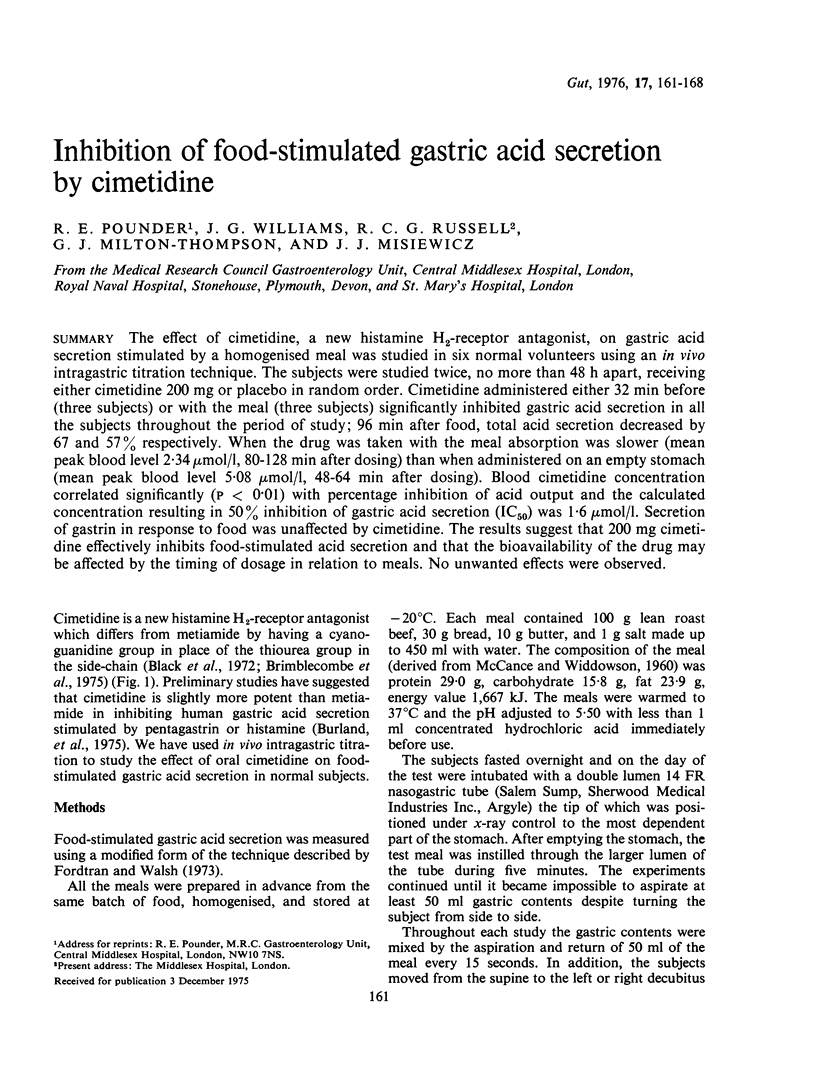
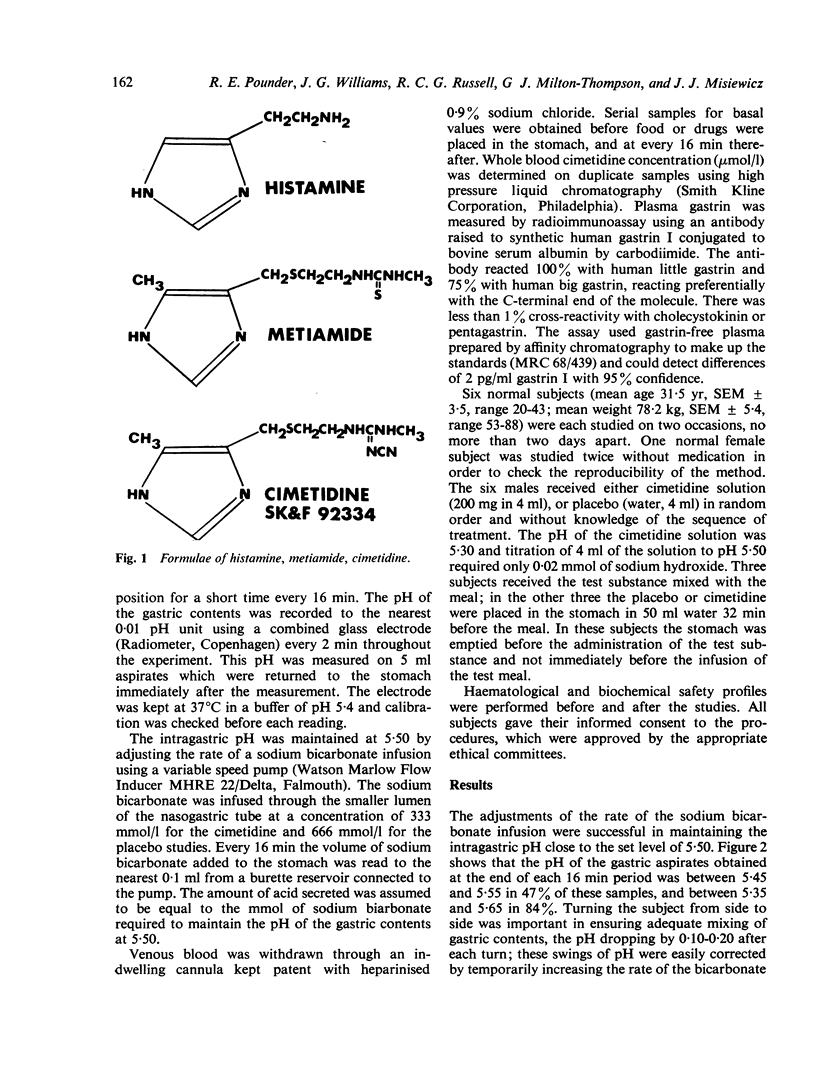
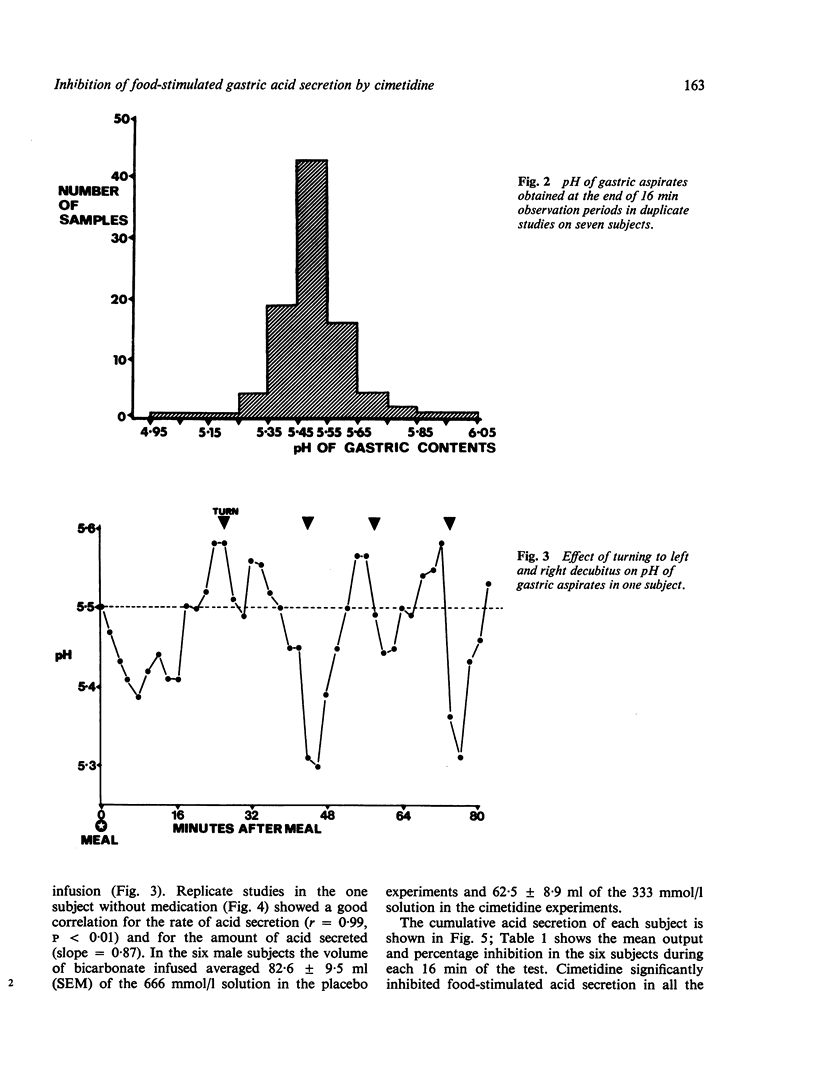
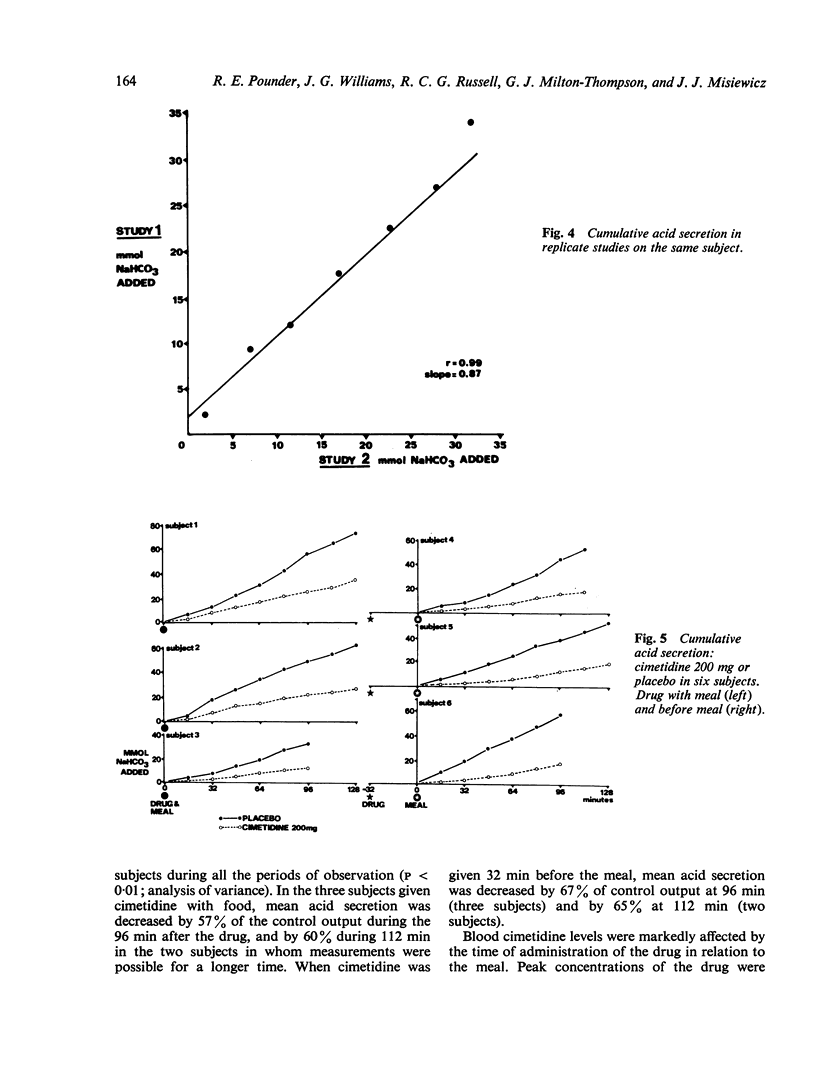
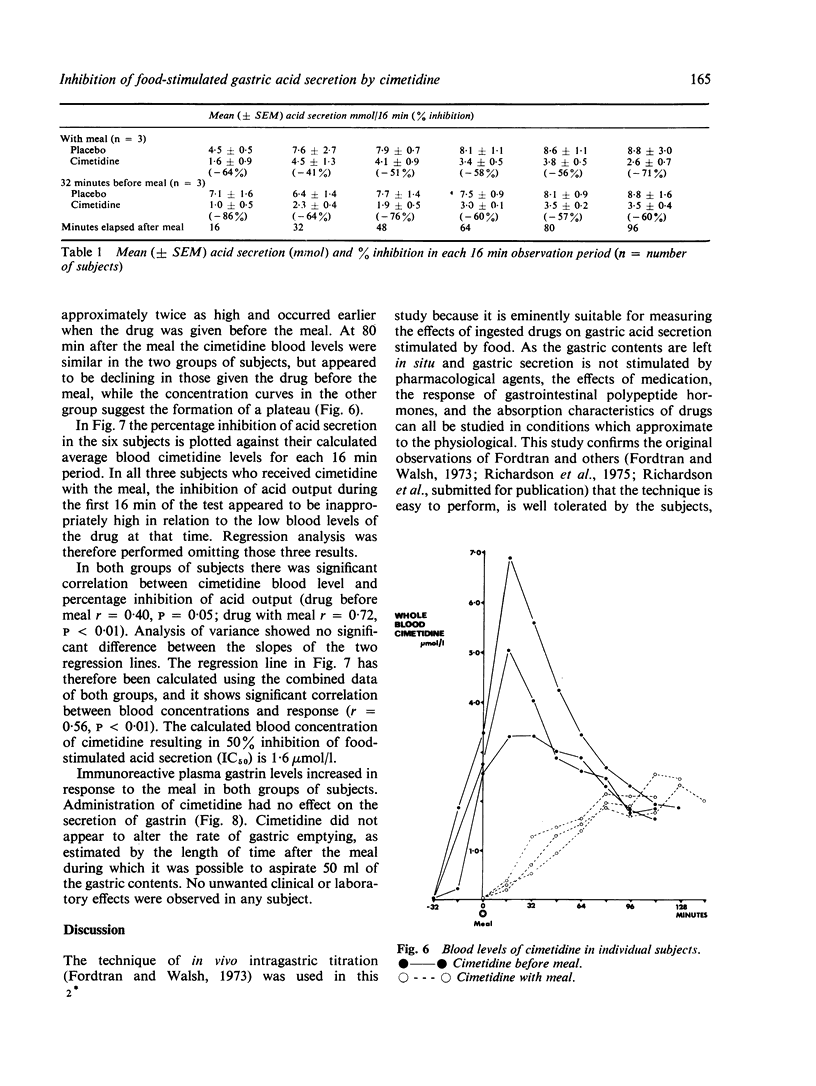
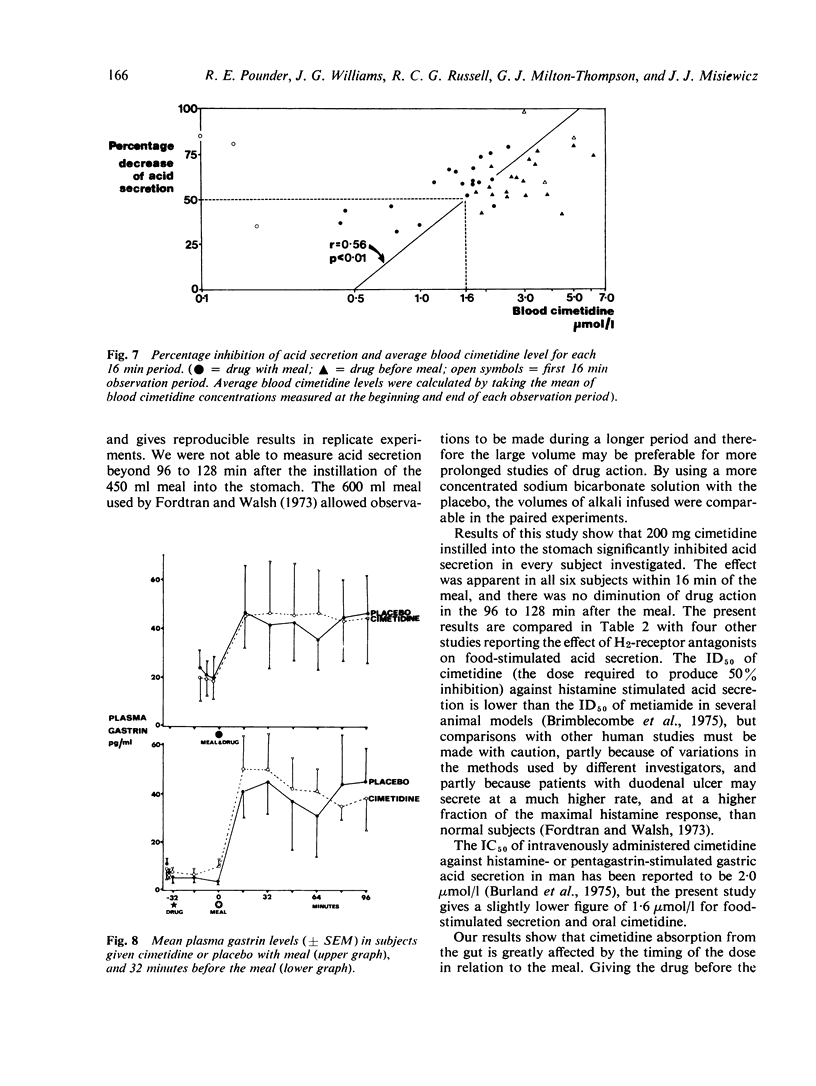
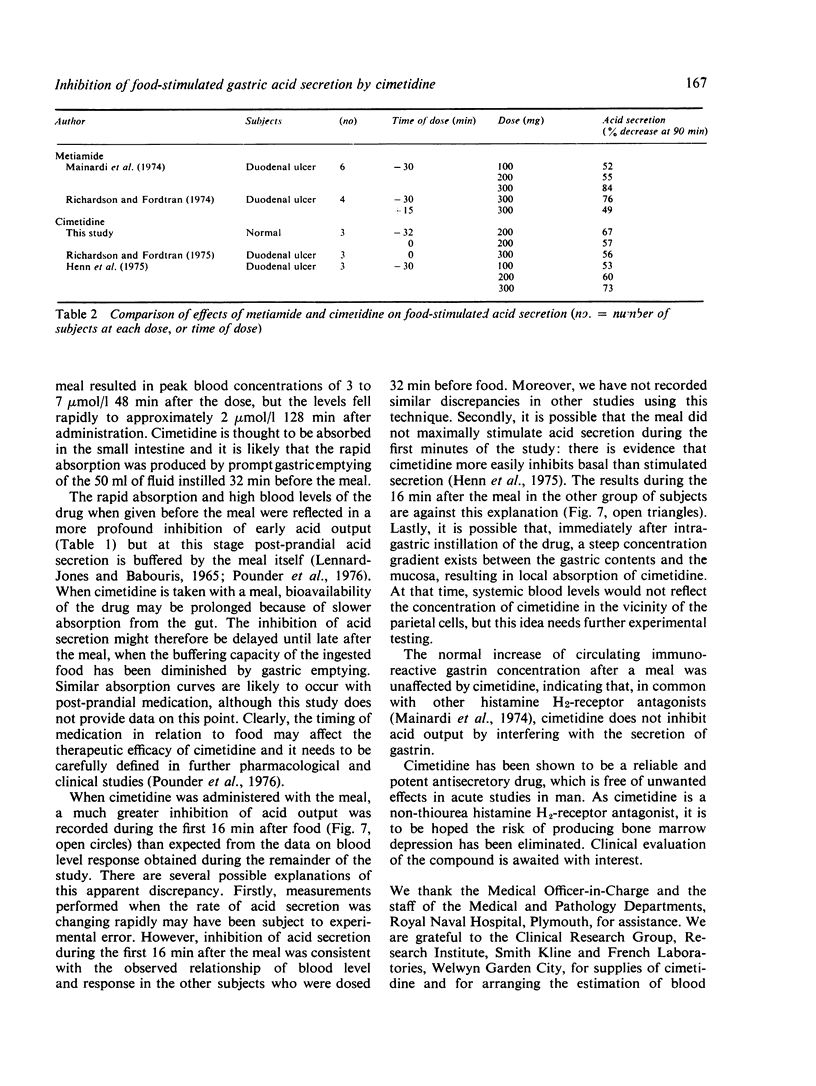
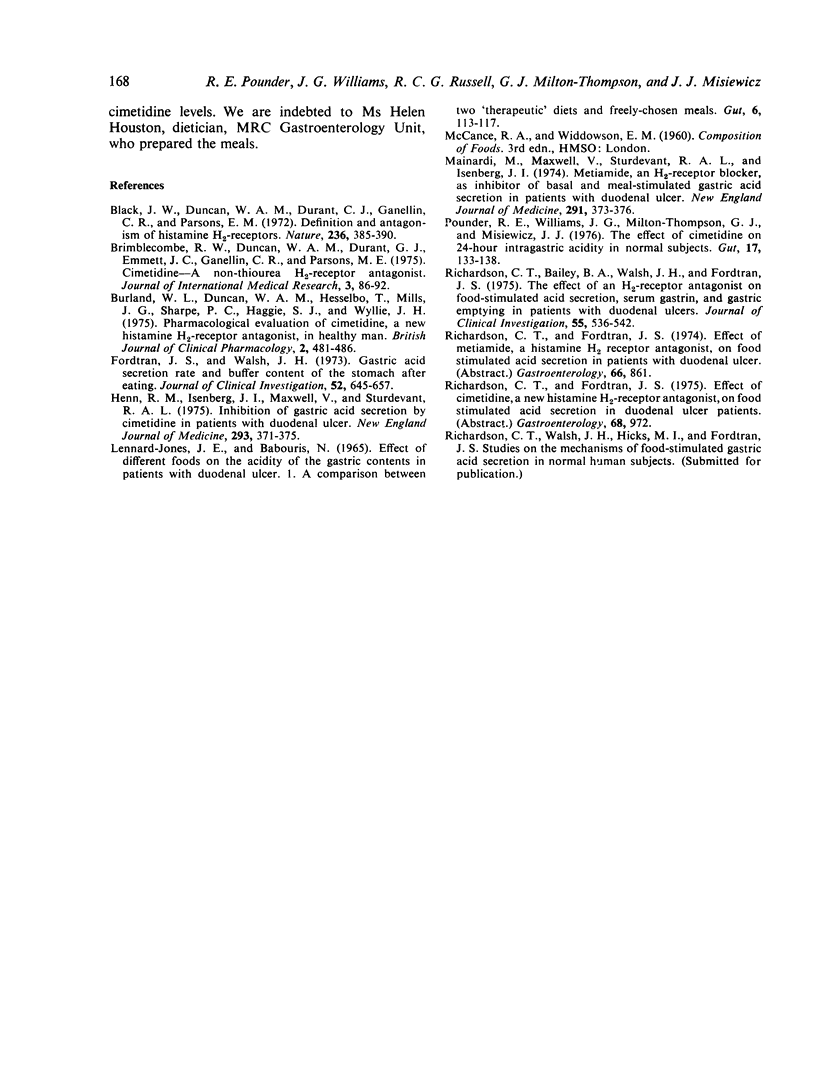
Selected References
These references are in PubMed. This may not be the complete list of references from this article.
- Black J. W., Duncan W. A., Durant C. J., Ganellin C. R., Parsons E. M. Definition and antagonism of histamine H 2 -receptors. Nature. 1972 Apr 21;236(5347):385–390. doi: 10.1038/236385a0. [DOI] [PubMed] [Google Scholar]
- Burland W. L., Duncan W. A., Hesselbo T., Mills J. G., Sharpe P. C., Haggie S. J., Wyllie J. H. Pharmacological evaluation of cimetidine, a new histamine H2-receptor antagonist, in healthy man. Br J Clin Pharmacol. 1975 Dec;2(6):481–486. doi: 10.1111/j.1365-2125.1975.tb00564.x. [DOI] [PMC free article] [PubMed] [Google Scholar]
- Fordtran J. S., Walsh J. H. Gastric acid secretion rate and buffer content of the stomach after eating. Results in normal subjects and in patients with duodenal ulcer. J Clin Invest. 1973 Mar;52(3):645–657. doi: 10.1172/JCI107226. [DOI] [PMC free article] [PubMed] [Google Scholar]
- Henn R. M., Isenberg J. I., Maxwell V., Sturdevant R. A. Inhibition of gastric acid secretion by cimetidine in patients with duodenal ulcer. N Engl J Med. 1975 Aug 21;293(8):371–375. doi: 10.1056/NEJM197508212930802. [DOI] [PubMed] [Google Scholar]
- LENNARD-JONES J. E., BABOURIS N. EFFECT OF DIFFERENT FOODS ON THE ACIDITY OF THE GASTRIC CONTENTS IN PATIENTS WITH DUODENAL ULCER. I. A COMPARISON BETWEEN TWO 'THERAPEUTIC' DIETS AND FREELY-CHOSEN MEALS. Gut. 1965 Apr;6:113–117. doi: 10.1136/gut.6.2.113. [DOI] [PMC free article] [PubMed] [Google Scholar]
- Mainardi M., Maxwell V., Sturdevant R. A., Isenberg J. I. Metiamide, an H2-receptor blocker, as inhibitor of basal and meal-stimulated gastric acid secretion in patients with duodenal ulcer. N Engl J Med. 1974 Aug 22;291(8):373–376. doi: 10.1056/NEJM197408222910801. [DOI] [PubMed] [Google Scholar]
- Pounder R. E., Williams J. G., Milton-Thompson G. J., Misiewicz J. J. Effect of cimetidine on 24-hour intragastric acidity in normal subjects. Gut. 1976 Feb;17(2):133–138. doi: 10.1136/gut.17.2.133. [DOI] [PMC free article] [PubMed] [Google Scholar]
- Richardson C. T., Bailey B. A., Walsh J. H., Fordtran J. S. The effect of an H2-receptor antagonist on food-stimulated acid secretion, serum gastrin, and gastric emptying in patients with duodenal ulcers. Comparison with an anticholinergic drug. J Clin Invest. 1975 Mar;55(3):536–542. doi: 10.1172/JCI107960. [DOI] [PMC free article] [PubMed] [Google Scholar]


